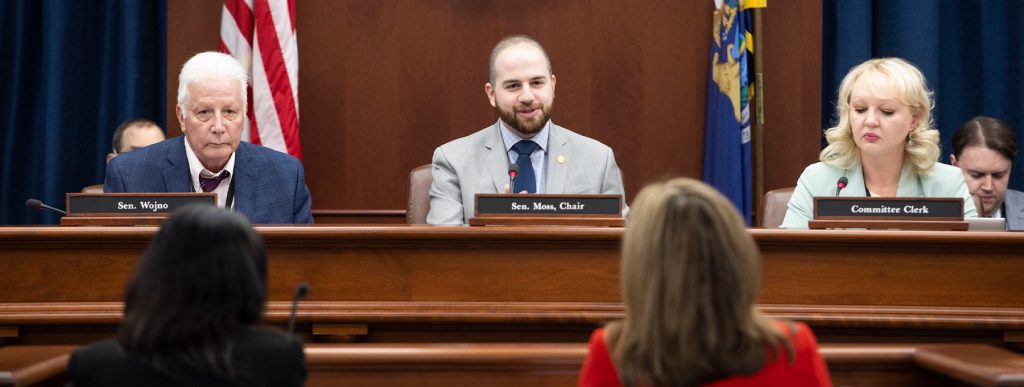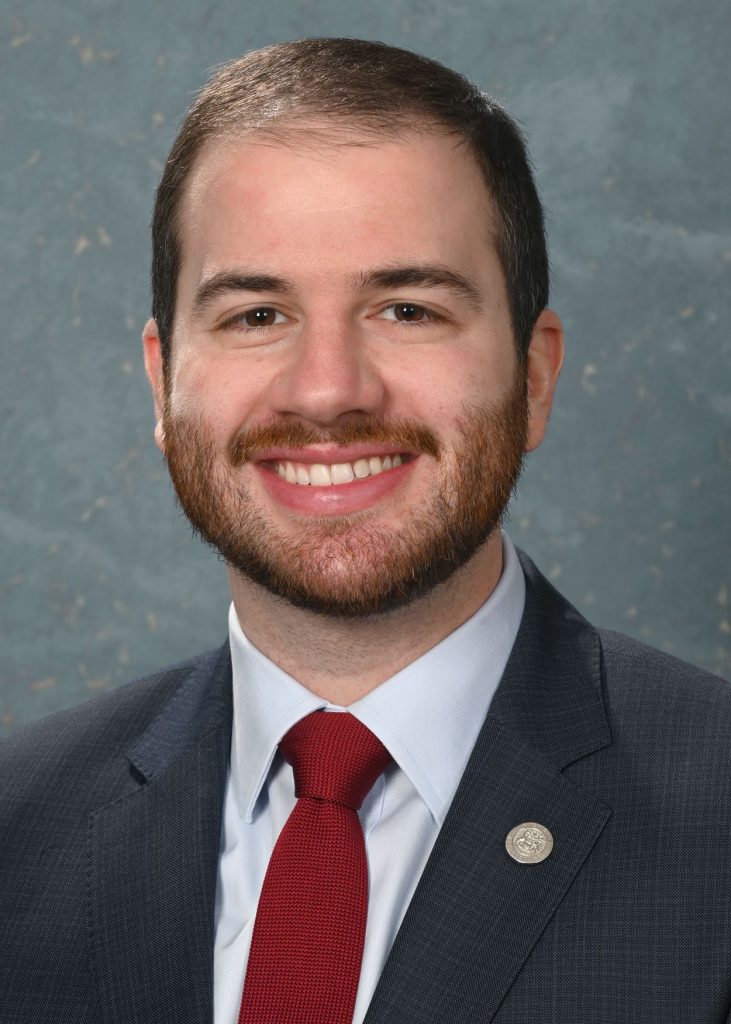State Senator
JEREMY MOSS
Michigan Senate | District 11

Dear Neighbor,
It has been a busy year in Lansing and this newsletter highlights some of the legislative work I’ve done so far. To stay informed about my work at the Capitol, please contact my office. Sign up for my email updates online at SenatorMoss.com or call me at (517) 373-7888.
Here’s to a happy, healthy and prosperous New Year for you, and your family and friends!

Jeremy Moss, Democrat
State Senator, District 11
Assistant Democratic Leader
Tax Savings for Homeowners:
Invest in Your Home, Revitalize Your Neighborhood
The House and Senate passed my bill, Senate Bill 319, to give much needed tax relief to Michigan homeowners, allowing them to invest more in their property and promote the revitalization of their neighborhood.
Specifically, it expands the criteria for the existing Neighborhood Enterprise Zones (NEZs) in our district, which allow residents in distressed areas to receive reduced property taxes, or have assessments frozen, while construction and rehabilitation of existing residential properties takes place. Check with your city hall to find out if you live in an existing NEZ or how to establish an NEZ in your neighborhood.
I also introduced Senate Bills 421-422 to provide an income tax credit to those who purchase a new residence or retrofit an existing residence to meet accessibility standards needed for those with physical limitations, providing an up to $5,000 tax credit for 50% of the cost to retrofit an existing residence, or up to 4% of the total purchase price of a new, qualified principal residence.
A thriving economy shouldn’t solely be measured by the profitability of our largest corporations, but also by the vitality of the working people in our neighborhoods. The Legislature has done a lot over the last eight years to reduce the tax burden on our major employers, but we can’t leave Michigan homeowners behind.
Fast-Tracked and Short-Sighted:
No-Fault Auto Insurance Changes
Earlier this year, the majority in the Legislature passed Senate Bill 1, which dismantles critical provisions in your healthcare coverage should you need it following a car accident – all in the guise of short-term savings. I voted against these changes because there are ways to reduce auto insurance expenses without jeopardizing essential care.
That’s why I co-sponsored legislation to bring transparency to how Michigan auto insurance companies set drivers’ insurance rates and require them to consider driving-related factors first — and weight them more heavily than other non-driving variables. Senate Bill 88 would require auto insurance companies selling auto insurance in Michigan to set rates based on: (1) an individual’s driving record; (2) number of miles driven annually; and, (3) years of driving experience. I also co-sponsored Senate Bill 499 to eliminate the use of territorial zones when setting rates.
For the third consecutive session, I sponsored legislation to outlaw a shady insurance industry practice called ‘price optimization,’ which prevents consumers from seeing rewards and discounts they might be entitled to while allowing insurance companies to set rates based on the maximum amount they think you will tolerate paying. Michigan would join the twenty other states that ban this billing gimmick under my Senate Bill 498.
I’ll continue to work to make auto insurance affordable in the state of Michigan.
To report billing scams and price gouging, and to learn additional information about the new no-fault auto insurance law contact the Michigan Department of Insurance and Financial Services:
Michigan.gov/AutoInsurance or (877) 999-6442
Drawing Fair Lines:
Independent Redistricting
Gerrymandering disrupts a functioning democracy. As a State Representative, I previously introduced legislation in 2015 and 2017 to create an independent commission to oversee the drawing of political boundaries, but the bills never even received a committee hearing.
Fortunately, Michigan voters in 2018 took it upon themselves to pass Proposal 2, which will end the practice of politicians picking their constituents by drawing lines favorable to their election or re-election, also known as gerrymandering.
Following the upcoming 2020 census, the newly created independent redistricting commission will be tasked with drawing new political boundaries for 2022. Applications are now available. If you or someone you know is interested in serving on this commission visit RedistrictingMichigan.org to learn more.
Combating Discrimination
In June, I joined with Governor Whitmer and the LGBTQ Caucus to renew the decades-old call to expand the Elliott-Larsen Civil Rights Act by adding sexual orientation and gender identity to the list of existing protected classes.
I sponsored Senate Bill 351, under which Michigan would join the 20 other states that protect LGBTQ individuals from housing and employment discrimination. No one in Michigan should be evicted or fired solely based on who they love or how they identify.
Giving a Second Chance
I introduced Senate Bill 293¸ part of a bipartisan and bicameral package of bills to reform state occupational licensing laws that discriminate against citizens with past criminal convictions. If passed, the bills would expand opportunity for residents with criminal records to find employment by not allowing the state’s licensing boards and agencies to include an individual’s past criminal conviction during their initial review process.
If we want Michigan’s criminal justice system to rehabilitate offenders, then we must be committed to giving those who have been rehabilitated a fair shot to compete in Michigan’s economy. When someone has paid their debt to society, they deserve a chance to find a job and become productive members of our community without additional, predisposed barriers or prejudice to their employment.
Shining a Light on Government:
FOIA Reform
Michigan ranks dead-last in the country in government transparency and accountability, according to the Center for Public Integrity. Part of the reason for our failing grade in ethics is because Michigan is just one of two states that does not subject the Governor or State Legislators to the existing open records law called the Freedom of Information Act, or FOIA.
Our current open records laws don’t actually inform the public about exactly what their elected officials do — and it’s time we catch up to the 48 other states that manage to make their transparency laws work.
I’ve spent my entire time in the Legislature working across the aisle to open up the inner dealings of government, so our constituents know what we’re doing with their time and their dollars. Bills I drafted and have pushed for four years are as close as ever to being law. I’ll keep you informed of their progress.
